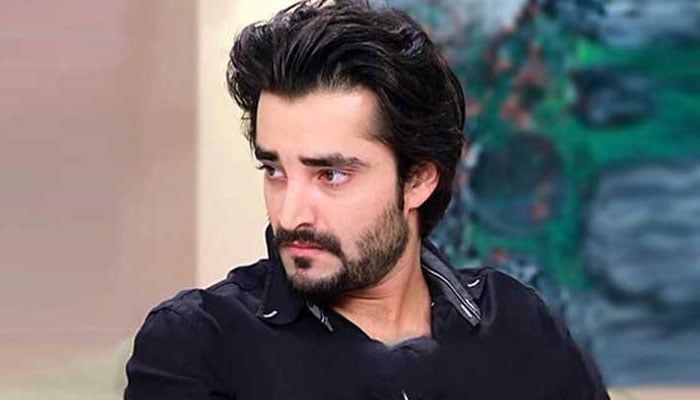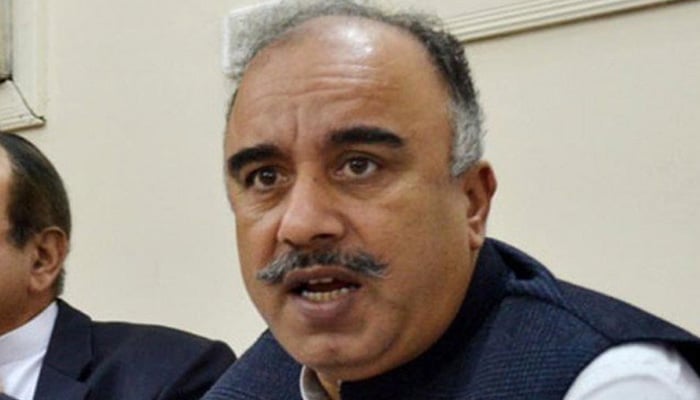There is talk, as their often is, of bringing in a presidential system in the country. Now, I do believe that in most cases, the simplest explanation is the correct one, Occam’s Razor and all that. But in Pakistan, the simplest explanation often is that the deep state – or ‘non-civil,’ as the new euphemism goes – is pushing a particular narrative.
But, even if they are pushing this particular narrative on the airwaves this time, it cannot be denied that the presidential system has always, unaided and organically, captured the imaginations of a particular strata of Pakistani society. Specially the lot that thinks all the ills of the country could be solved with a bit of tough love (here, a narrative overlap with the non-civils) and that we need a strong, unfettered leader.
This particular iteration of the debate was launched off by Hamza Ali Abbasi, the PTI-supporting actor, on social media. But later on, it was the subject of much discussion on other channels as well, leading one to believe that there just might be some coordinated effort behind the whole thing.

KP Governor Shah Farman (not the sharpest tool in the shed) was also on TV, elucidating on the merits of the presidential system, in a manner that was surprisingly articulate and well-informed. Leading one to believe that the fellow was tutored to parrot off those talking points. The other explanation (that he is actually better read than previously thought) doesn’t make sense. Again, the simplest explanation, as explained above.

Hamza Abbasi cited the manipulative leverage of the legislators as the biggest minus in the parliamentary system. That really doesn’t make any sense.
The French political philosopher Montesquieu, who fathered the theory of separation of powers, on which the American constitution is based, merely argued for a separation between the legislators and the executive, not that the former should not exist in the first place!
As opposed to common belief, the prime minister in a parliamentary system is actually more powerful than the president in a presidential system. How? Well, the premiere always has legislative leverage. He or she can pass simple legislation relatively easily because that’s how he or she is the leader of the house in the first place. Simple majority. American presidents, on the other hand, can be straitjacketed were the other party to dominate the Congress, and they often do. Barring certain, rare instances, like the 2008-2013 PPP-led coalition which, after the League pulled out, didn’t even have simple majority and relied on the collective opposition’s decision not to table a no-confidence motion, prime ministers can always table and pass bills.
There is one area, however, in which the US president has more power. And that is the selection of the cabinet. The spoils system, as it is called, enables the president to name just about anyone as a cabinet member, whereas the prime minister of Pakistan has to choose from amongst the Members of the National Assembly, the Senate. Unfettered choice only in the maximum of five special advisors (with status of minister) that the PM can appoint.
About this ‘constraint,’: first, a tad insulting to the representatives of the people. Imagine putting this up to be constitutionally amended (‘please change the constitution because we think you MNAs and Senators are na laayaq.’)
The bureaucracy can be the competent specialists. And there, the PM can actually appoint just about anyone, the DMG-types be damned. That’s the power of the PM Office. Ministers and political bosses should be the overlords to these bright-spark mandarins, offering the Cartesian common sense that only the political class seems to have.
If the party still insists on the political boss of the ministry to be this specialist, then surely, the women reserved seat benches could be used to bring in said specialists.
But why even go as far? How about we look at the example of former finance minister Asad Umer? Now even though Asad Umer is an elected member of the assembly, he is as good as having come through the spoils system. His election wasn’t based on any connection with the realpolitik of his Islamabad constituency; anyone with a PTI ticket would have made it. Imran Khan just had to point at anyone.
The prime minister – and, by extensions, fanboys like Hamza Abbasi – seems to think Asad Umer did not perform well. What did you make of the little bit of spoils system power that you did have?
The PTI and it’s supporters first presented Imran-as-PM as the silver bullet solution to everything, regardless of how he comes in, as evidenced by the shady election process of 2018. Now, they are saying that the man should be president. This reminds me of the famous Munir Niazi poem;
aadat hī banā lī hai tum ne to ‘munīr’ apnī
jis shahr meñ bhī rahnā uktā.e hue rahnā





